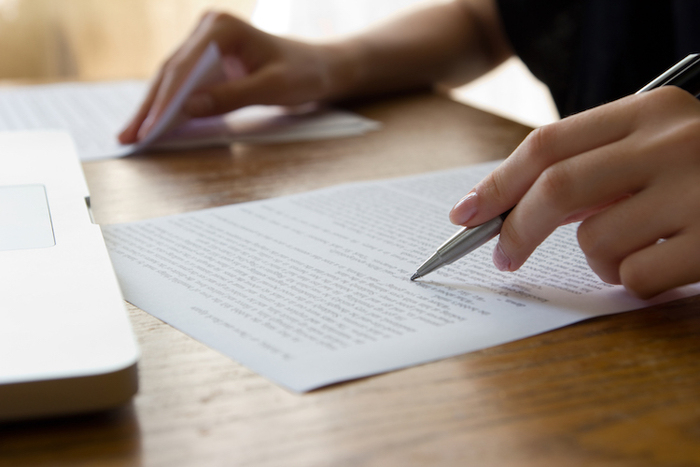Why You Need an Editor for Your Self-Published Book (and How to Find One)
Being a self-published author means you get to enjoy the creative freedom you always desired. You work on your own deadlines, and decide exactly how your book budget is spent. You’re even getting good at marketing yourself and your creative projects in the process!

Hiring out for something like a cover design makes sense since you’re no pro at design, but an editor seems unnecessary when you already consider yourself a wordsmith.
You’re basically a jack of all trades at this point, so why hire an editor? You might as well save some money and count on your own editing, right?
Wrong. In fact, not hiring an editor is one of the biggest mistakes a self-published author could make.
No matter your style of writing, you should plan on having an editor before releasing your work.
A few editing mistakes can ruin the reading experience for future fans, and waste all the time and money you spent on promotion and design.
Readers can mistake editing mistakes as a lack of care for the piece, and you can miss out on a crucial edit to make your piece meaningful to the public. And repeated typos and discredit your skills as a writer.
On the other hand, there are many perks to bringing on an editor:
- You’ll receive editorial education working one-on-one with an editor.
- An editor can give an outsiders perspective so you can be sure that concepts that may be clear in your head are coming through in you work.
- Any work that contains a story should follow a narrative arc. An editor can help you build your story arc in a way that audiences will find compelling.
- An editor will help you learn how to improve your voice without changing the essence of it.
- A well edited book makes the reading process a smooth and helps your readers trust you.
Those perks sound pretty good, right? But now you’re tasked with finding and hiring the best editor for your book. Follow the 4 steps to find the right person for the job:
1. Know What a Good Editor Looks Like
There are no licenses required to be an editor, so someone with any level of experience can dub themselves an editor.
Save your future self some time by locking in a quality editor who you can use for all your books and creative projects moving forward.
The best way to do this is to go into your search knowing the signs of a great editor.
A great editor should:
- Give compliments as well as honest critique
- Give detailed and constructive feedback that gives you ideas in ways you can fix your errors
- Not be afraid to tear apart a piece of your work. While your instinct may be to be defensive, a good editor’s word of advice will hold truth
- Go through your work carefully. An eye for detail is key
- Should always see the work as something separate from their relationship with you
- Maintain your voice and personality
2. Set a Budget
Set aside some money for an editor as you work. Typically editors charge an hourly rate that varies depending on the type of work you need:
- Indexing: $3-$5/page
- Copy editing: $30-$40/hour
- Proofreading: $25-$35/hour
- Substantive editing: $40-$70/hour
That means for a book that’s 70,000-80,000 words, you would pay around $6600:
- $3500-$4,000 for substantive editing
- $1200 for copy editing
- $900 for proofreading
- $1000 for indexing
3. Research and Choose Possible Editors
Search a few sites that allow you to search through freelance editors like Reedsy or Fiverr. You can also try author-to-editor matching services like NY Book Editors.
Look for editors with experience in your genre who have reliable reviews. Create a list of 9-15 editors that appeal to you, then list them from your top picks down. Your top picks should be the editors you contact first.
4. Create Targeted Submissions
It’s just as important for an editor to ensure you’re a good fit for them as it is for you.
A good way to stand out from the hordes of authors that are seeking editors is to create targeted submissions.
Targeted submissions are when you personally reach out to a possible editor who you know enough about to know that they would be a good fit.
Find the editor’s contact information either via the search site you chose or their website. Some editors can also be found on LinkedIn.
Submit your work along with a personal email to no more than 3-5 editors at a time. This gives you a chance to optimize your work and approach in between.
If a couple of editors you chose work for the same company, space out your submis-sions and make sure one of them rejects you before hiring another.
Congratulations! You’ve graduated into the big leagues and hired your first editor.
If you’re not quite ready to dish out $6000 for an editor but you want to improve the quality of your work anyway, try out our self-editing tips for writers to polish your work for future fans >

